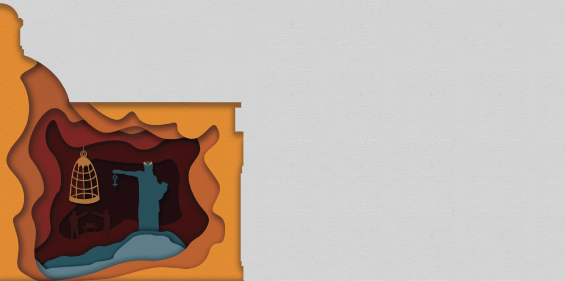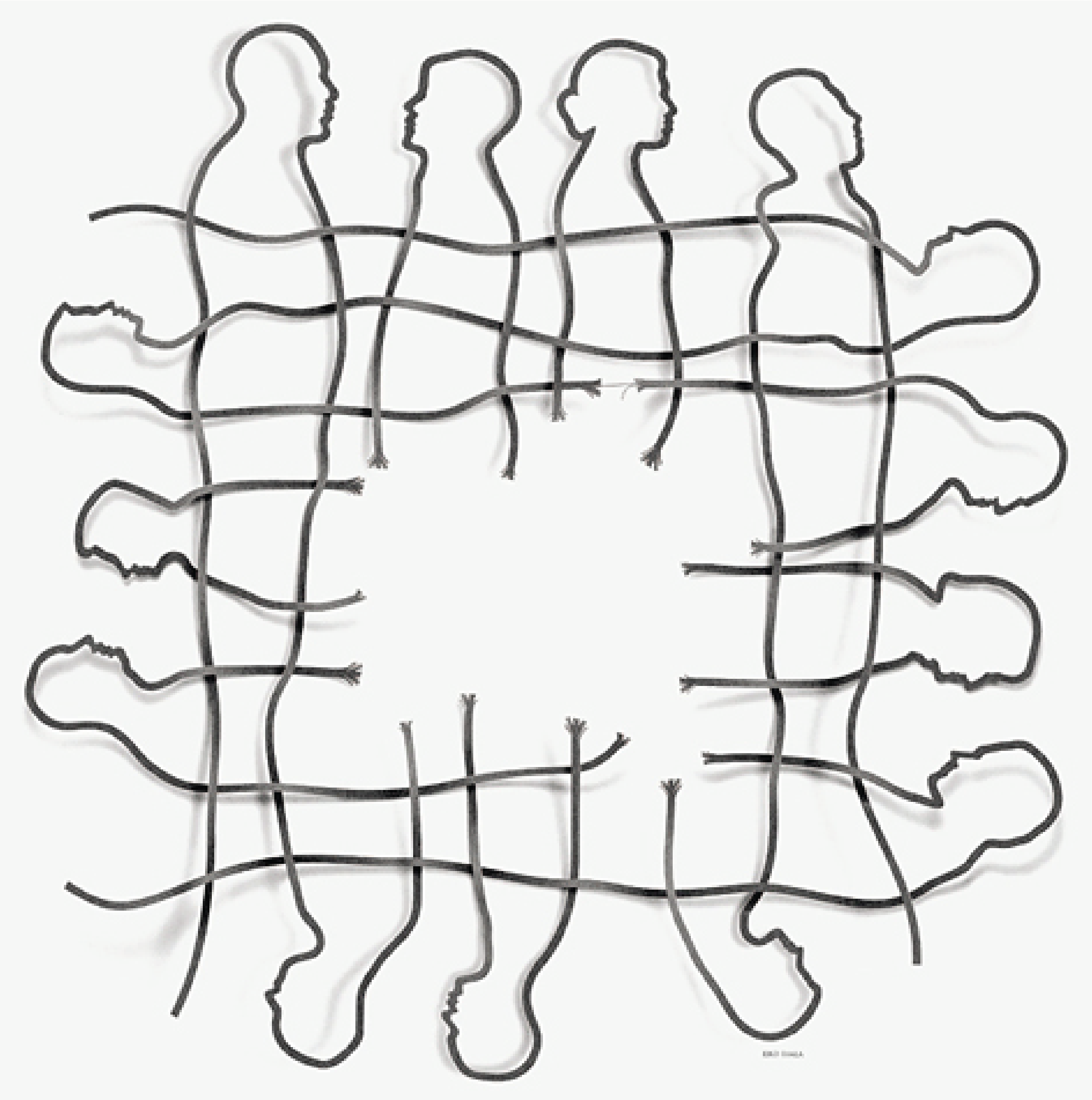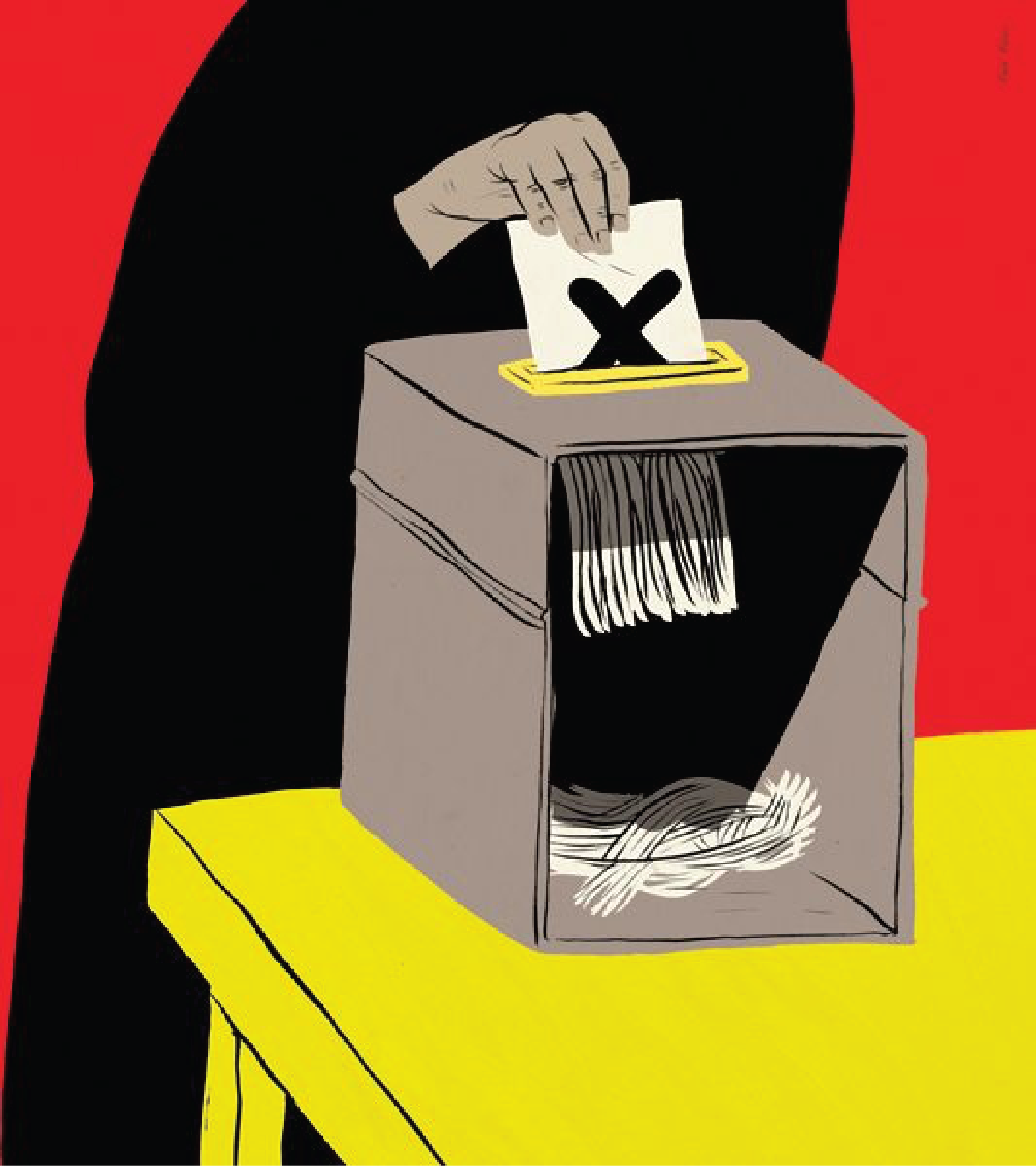

Body of IITR

In most discussions pertaining to systems, processes and cultures, IITR is found to be lacking when compared against its sister IITs. The previous academic year saw us moving one step further in one such domain – our electoral systems. However, just as we saw the transition being successful and meritocracy coming to the fore in the case of elections, an unfortunate incident in Jawahar Bhawan, took us two steps backward. Incidents like these force us to dwell upon our shortcomings, both in terms of students and organisations. Herein, we try to offer an analysis of the electoral system at IITR.
The earlier system of elections at IITR required for a two level voting system to take place. A council of 108 members, called SAC-1, consisting of Bhawan level office holders was elected, with a voter’s vote restricted only to the posts in their Bhawan. The elected 108 then voted for a SAC-2 which became the primary executive body of the SAC, responsible for institute level decisions and changes. This system created a need to unite a majority of 55 candidates under a single umbrella. What filled that void were easy targets based on identifiable and personal common grounds. Unbecoming as it might be of an institute of our stature, but votes were cast based on regional and factional preferences.

Political “factions” in the campus often run the risk of being taken a little too seriously. It does not take time for members to take personal disputes in a collectivist sense and act accordingly. With this as the case, disputes such as these often tend to boil over and snowball into full blown clashes, violent in their nature and immature with their logic. This aptly sums up the Jawahar fiasco.
This has led to the DOSW cancelling the elections and in constituting an interim SAC to carry on the workings till the next elections, prophesised to take place in March’17. This step may look reasonable, but has its own flaws. When we asked the DOSW on what basis the student representatives would be selected, there was no specific answer but vague mentions to analysing career plans and listening to ideas proposed by the candidates. The question here is not that of the competency of the candidates, but rather of checks and balances to ensure it. No election will be perfect. However, it needs to be fair and transparent.
Even though the system has been revamped and the atmosphere seems to favour competent candidates but there still remain some grave issues that need to be addressed, before we move onto the next election. Looking at the new election system, we spotted a few anomalies, and a multitude of illogical clauses making up our Election’s code of conduct that insidiously hinder meritocratic politics. We approach these, one at a time and offer a few solutions to them.

Perhaps one of the biggest issues yet to be addressed, there exists no provision for candidates to put forward their opinions and debate openly about issues that plague the campus. The outlet for such an addressal system does exist now in the form of the ineffectual and seemingly fictional “Bhawan Addressal System”. The system is a relic and allows for candidates to make speeches of a specified duration in each hostel, highlighting their credentials and plans.
However, the system is a complete failure, partly due to the apathy of the student body and partly due to the system it promises to be. The ADOSW mentions, “We tried allocating time slots to candidates for using the Bhawan addressal system. The observation was that the voter turnout was scant and uninterested.”
Usage of printed posters for campaigning is prohibited, even though they are an extremely important way of communicating the agendas of a candidate to the masses. Instead, the code of conduct allows for hand written posters to be put up on stipulated places. The motive behind this restriction is a logical one - to ensure that the students do not overspend during the election process and the problems of accounting such a provision faces. However one does not have furrow their brows to come up with a solution to this problem, discussed in the later stages of our story.
The code of conduct strictly prohibits online campaigning of any sort since it cannot be regulated and that there are no checks to arrest any unwanted developments, which might lead to the defamation of the college. In a scathing but true indictment, “An online portal is being worked on and we wouldn’t mind going online after the college has attained a level of maturity befitting an IIT”, says Prof. Nauriyal.

Since the girls have to be back in their own hostel by 11 pm, as well as cannot enter other hostels for campaigning as easily as the male candidates, they enter the ring with a handicap. The roots of this can be found in the age old issue surrounding the curfew on girls. With that in place, a female candidate can barely match the reach of a male one.
Certain posts at the hostel as well as the institutional level are viewed as redundant, as they have no assigned responsibility, and a very limited active role. The ADOSW’s response is best stated in his own words: “It is always the responsibility of the elected member to implement what he has planned. No one restricts the representatives to any particular activities. If the Secretary is enterprising enough, he can bring up new ideas, and if they are good we will go ahead with them. No post is irrelevant and if the students are ready to work on their posts then there is a lot that can be achieved. If someone just wants to enjoy the perks of being elected, he will not work. Furthermore, if you genuinely have a sound logic to refute some posts, do come to us and we will consider it accordingly. A similar thing happened with General Secretary (Finance) this time, as we felt that the budget didn’t need a separate person just to handle the financial affairs and we got rid of the post.”

They say learning never stops, and it shouldn’t in this case either. We take this opportunity to examine our procedures to see where we lack, and how we can improve.
A soapbox is a central event where the contesting candidates comes and ask relevant questions to each other. It misses the tension and heat of a debate all while having incisive questions asked among the candidates in the fray. When asked about a soapbox Prof. Indradeep Singh, ADOSW (Discipline) cited the trivial and workable details such as the unavailability of an adequate space and security issues as the roadblocks to conduct such an event. “The student population is around 8000. Considering that around 1500 turn up, we lack a place to accommodate them at once”, says Prof. Indradeep Singh.
We suggest for the election commission to limit the following factors in the case of printed posters:
Accounting for the aforementioned factors immediately deals with the hazards posed by unsupervised spending and ensures effective campaigning. The election commission in IIT Bombay, allows for banners and flexes to be put up in pre decided spaces, which both curtails any extra expenditure, and gives equal footing to all the candidates involved in door-to-door campaigning. Each candidate is allowed to put up a 6’x3’ flex, containing the candidate’s photo and announcing the main points of their manifesto.
The fairness of not having discussions and campaigning on online mediums cannot be debated. Such discussions often venture into uncomfortable territories and cannot be stopped from proliferating into controversies. However, we understand that there is no online portal or forum where candidates can put up their manifestos, nor does the general public have any idea as to where they can find a copy of the manifesto. In other IIT’s, provisions of online portals displaying each candidate’s manifestos have proven to be an extremely efficient method to keep the masses updated on each candidate’s modus operandi, and has helped the decision making process stay simple yet based on merit.
We suggest the creation and maintenance of a regularly updated web portal, upon which candidates can post their manifesto, a portal where the general electorate can compare the profiles of the candidates, as well as have a neutral third body asking the right questions to each candidate, and posting the answers onto this forum. As was mentioned by the DOSW, work on such a portal in already underway and we can hope for the aforementioned points to be present in one way or the other during the next elections.
It is accepted that improvement in every system is an iterative process and each iteration takes time and thorough deliberation. The newly adopted system in IITR is a welcome step towards meritocratic politics and is still in its infancy. However, the general student populace is still largely lukewarm towards the elections and some reforms need to instituted to overcome that. With the perspective of history and an eye towards the future, we should anticipate what new potential challenges may lie over the horizon and consequently the reforms that need to be devised to ensure fair and transparent elections.
The article features as the Cover Story in our latest print issue. The issue’s Big Stories analyse IITR’s security and expound on the limited academic flexibility offered at Roorkee. To read our previous issues visit: https://issuu.com/wona-iitr